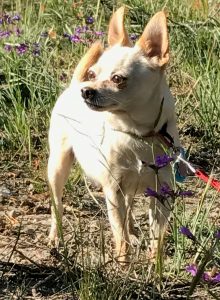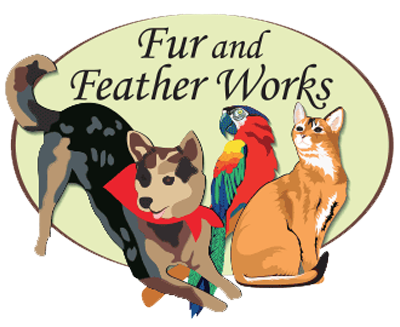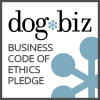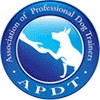
If you’re looking for agreement from a dog trainer, you’re talking to the wrong ones. We love small dogs. Many of us have small dogs, and they’re well trained. So why do they have such a bad reputation?
It’s important to know that small dogs come programmed with the same brain as big dogs do. They come with the same hard-wired needs and behaviors. They are not dumber or harder to train. The difference is in the job they were bred to do, and in how differently people treat them.
Many small dogs are under-socialized.
While very tiny dogs are more physically fragile than larger breeds, isn’t healthy for a Chihuahua puppy to be raised in isolation (read: in a purse) any more than it is a German Shepherd or a Labrador. This leads to fear and aggression problems, the same as it would in any other animal.
Adding to this problem, many small breeds were genetically designed to be pets, and with that “job” comes the desire to be with their human at all times, preferably touching them, perhaps to the point of over-bonding. If these breeds aren’t taught at a young age that humans other than their primary caretaker are pretty awesome too, trouble can brew.
For some reason, socialization is always very important to large dog owners, but not so much for those who own small dogs.
Many small dogs are under-exercised. 
Your little dog has a perfectly good set of legs, and he needs to use them regularly. Small dogs need walks, fresh air, play dates, and extracurricular activities just as much as big dogs to maintain good behavior and health.
People aren’t as concerned with a small dog’s behavior.
The first time a small dog barks and lunges at a person, it’s considered funny and even encouraged with teasing. The first time a Golden Retriever does it, it’s considered a serious behavior problem and it’s addressed immediately. If your small dog is showing aggressive behaviors, she’s very, very stressed. Reach out to us for help before it gets worse.
Small dogs often aren’t house trained properly.
If a toy Poodle has an “accident” on the carpet, it’s easy to clean up. If a Great Dane has an “accident” on the carpet, it’s a major project. If this goes on for 6 months, which one of these breeds do you think is more likely to work with a professional to get it under control? Maybe small breeds, because of their tiny bladders, are more work to housetrain, but the difference is marginal. The bigger problem is that “accidents” are much easier to miss or ignore until the habit is ingrained and has started to make the house smell.
People don’t respect a small dog’s right to say “no.”
Let’s say you’re a fluffy little Pomeranian whose favorite spot is in your owner’s arms. You hate being touched by strangers (perhaps because you didn’t meet many as a puppy); it’s violating. But, when you’re in your owner’s arms, you have no way of escaping. You try to say “no thank you” with a sharp look, hard stare, freeze or growl, but you’re so darn cute, people pet you up anyway and laugh when you’re grumpy. How long will it take you to figure out that growling is ineffective, but a bite makes people back off REALLY fast? Small dogs are smart, and they will do what is effective to protect themselves just as much as a big dog.
The moral of the story
Treat that small dog like a big dog. Ask yourself, would this be okay if my Rottweiler did it? Be aware that small dogs are more physically fragile than big dogs, but mentally, they are the same, so pretend you have a Labrador retriever instead of a Shih-Tzu and you will have a much better behaved dog!








